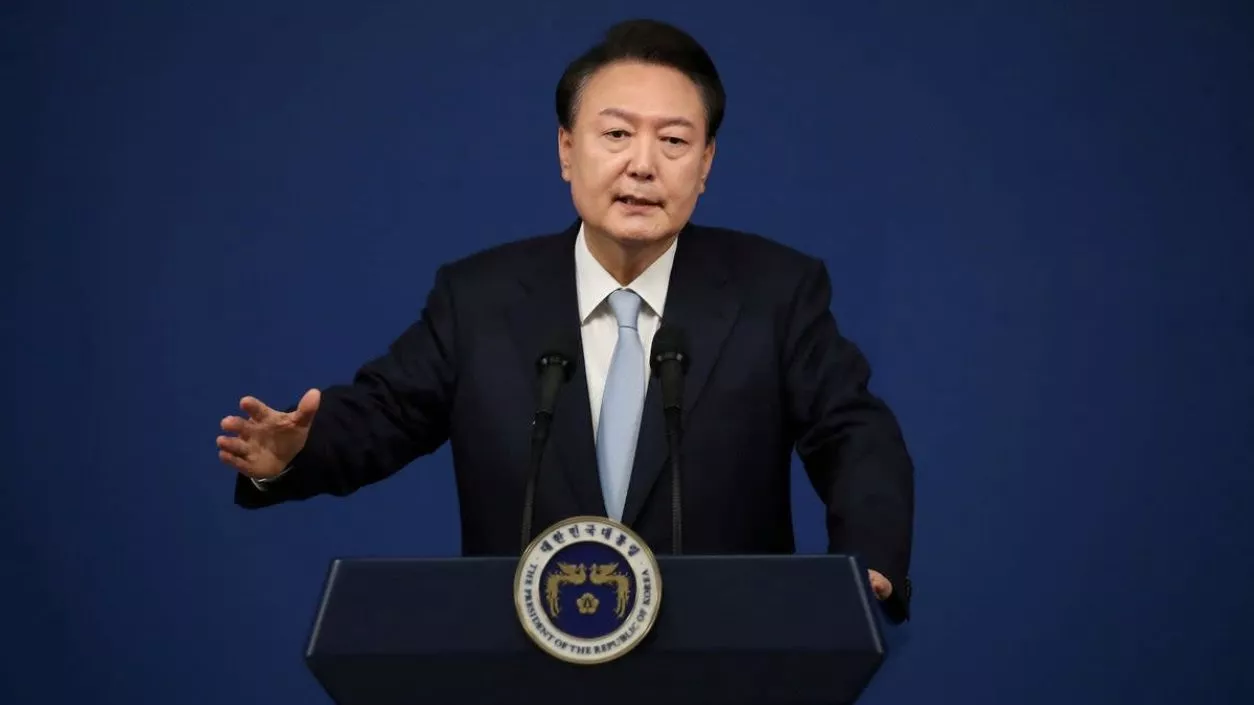Malda follows Tripura’s lead, bans Bangladeshis from hotels amid growing border tensions
.gif)
.gif)

South Korean President Yoon Suk Yeol declared emergency martial law on Tuesday, citing the need to protect the country’s democratic system and national security from actions he described as subversive by opposition parties. In a televised address, Yoon stated that the opposition’s actions had paralyzed the government, hindered its legislative processes, and presented a threat to the country’s constitutional order. Yoon argued that martial law was necessary to safeguard South Korea from anti-state elements and to preserve its liberal democracy.
Yoon directly accused opposition parties, particularly the Democratic Party of Korea, of undermining the government’s ability to govern by using their majority in the National Assembly to block key government initiatives. He referred to these actions as “anti-state activities,” emphasizing that the opposition’s repeated efforts to impeach key government officials and reject crucial legislation had effectively paralyzed the administration. “To safeguard a liberal South Korea from the threats posed by North Korea’s communist forces and to eliminate anti-state elements... I hereby declare emergency martial law,” Yoon declared.
The announcement of martial law comes after months of political gridlock between the president and the opposition-controlled National Assembly. Since Yoon’s inauguration in May 2022, the Democratic Party has used its parliamentary majority to block key elements of Yoon’s proposed budget and to oppose several of his cabinet appointments. The opposition’s actions have resulted in significant delays in passing critical legislation, leading to accusations that the government has been unable to function effectively. These political standoffs have contributed to a growing divide between the executive branch and the legislature, with both sides accusing each other of sabotaging the country’s governance.
Yoon’s declaration marks the first time in South Korean history that martial law has been declared since the end of military rule in the late 1980s. The move has drawn significant attention due to the country’s history of military dictatorships, and its implications for South Korea’s democracy. Although Yoon did not specify the exact measures to be implemented under martial law, he stated that it was necessary to protect the country from perceived threats, including from North Korea. The decision to declare martial law follows heightened tensions in the region, as North Korea continues its military activities and poses a potential threat to the security of the Korean Peninsula.
In response, opposition leaders have vehemently criticized Yoon’s declaration, accusing him of attempting to consolidate power and bypass impeachment efforts. They argue that Yoon’s use of martial law is an overreach designed to suppress dissent and maintain control over the government. Opposition spokespersons have warned that the move could lead to authoritarian rule, erode the country’s democratic institutions, and undermine the separation of powers. They also pointed to previous political crises, where martial law was used by past governments to quell dissent and suppress opposition movements.
Yoon’s martial law declaration is a culmination of an ongoing struggle for power between the executive and legislative branches. Since taking office, Yoon has faced significant opposition in the National Assembly, with the Democratic Party frequently blocking his government’s policies and questioning his leadership. Despite the political impasse, Yoon’s office has remained firm, asserting that the opposition’s actions have undermined the country’s stability and its democratic order. The situation remains fluid, with no immediate resolution in sight.